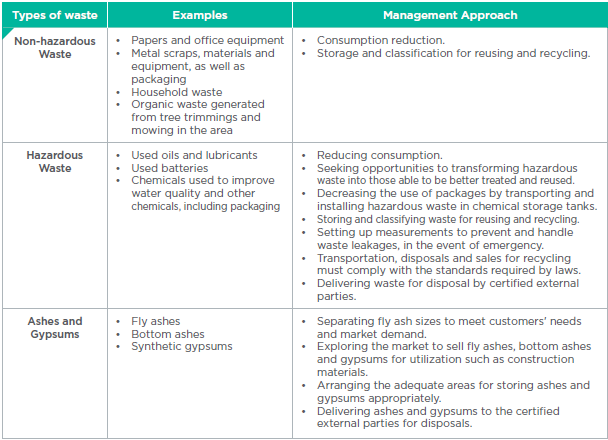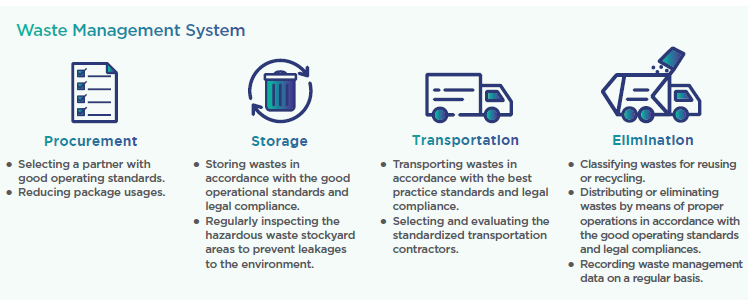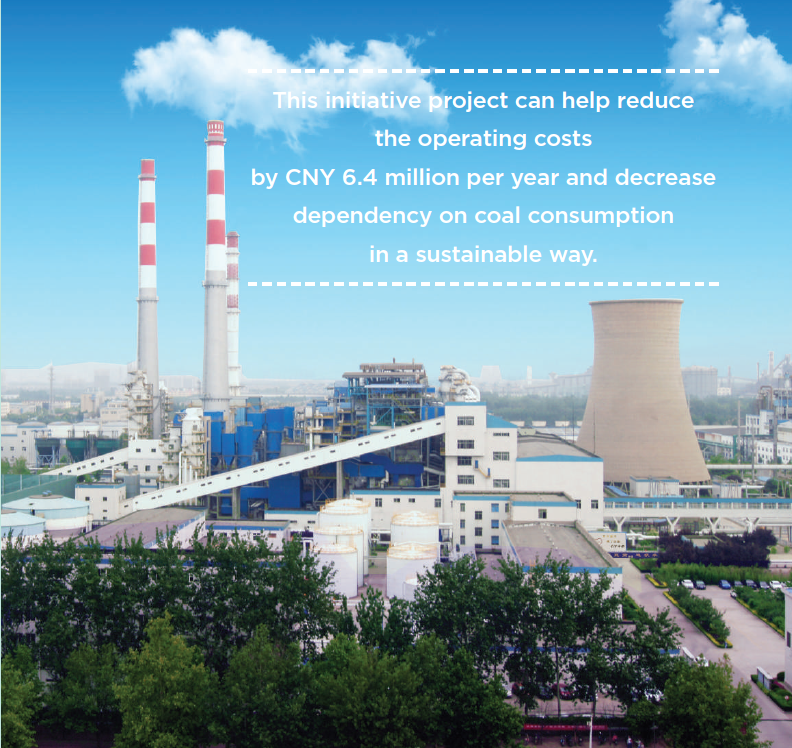Significance
A conservation and valuable utilization of resources is the best practice to minimize waste generated from operations. The appropriate and efficient waste management can also reduce costs for waste disposals. This includes reducing the impacts on environment and surrounding communities caused by hazardous waste leakages and unproper disposal.
As for conventional power business, aside from non-hazardous and hazardous waste generated, there are also by-products created from fuel combustions and air quality treatment processes, namely ashes and gypsums. Both ashes and gypsums can be utilized and added values by selling them as mixtures of construction materials.
Management Approach
BPP has managed its waste with the 3Rs principles, as following:
- Reuse
- Recycle
- Reduce
The key target of BPP’s waste management is to have no hazardous waste to landfill, and to monitor waste disposal operation by comparing with the annual target. This is to ensure that the power plants’ waste management is conducted in accordance with best practices and legal compliances of each country.
Waste from the three CHP plants is classified into three types with following management approaches:


Performance
- 0 tonnes of hazardous waste to landfill.
- Hazardous waste direct disposal was 3 tonnes.
- Non-hazardous waste direct disposal was 300 tonnes.
- Proportion of fly ashes disposed by reusing or recycling equaled to 100%.
- Proportion of synthetic gypsum eliminated by reusing and recycling was 100%.

Key Activities and Projects
Document Download
Waste Management Policy




